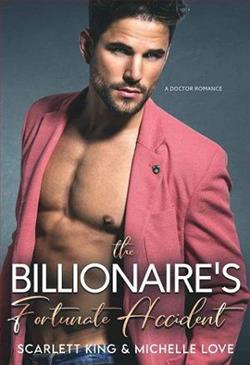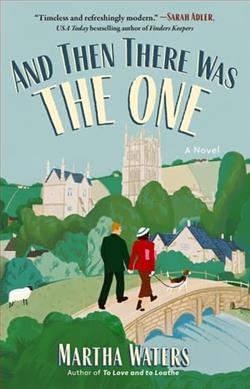Page 40 of Accidental Doctor Daddy
No matter what I thought about Dom, my girls had to come first.
Chapter 14
Dom
The drive up to Briarcliff Manor was always a welcome reprieve from the relentless pace of Manhattan. As much as I thrived in the chaos of the hospital and the city, there was something about the country home—set high along the Hudson River, surrounded by acres of greenery—that gave me room to breathe.
It was too much house for me these days, and every once in a while, I had the urge to sell it. But I could never bring myself to do that. Too many memories. I had a few homes—this country house, my apartment in the city, another apartment in Chicago for when I had to handle Morbinski business, a cottage in Oregon, and a cabin in Aspen. It was too many, but each one held a special meaning to me.
The house itself, with its ivy-covered stone facade and wide terraces overlooking the water, had been something I’d worked toward for years. When Morbinski stock went public, it was the first thing I bought. The country home was grand without being ostentatious and quiet without being lonesome. It was the perfect getaway from the city.
Even in winter, it was lovely. I arrived before the kids to set things up, opening the windows in all six bedrooms briefly forfresh air and then closing them shortly after to prevent the entire house from freezing. The city was always warmer than Briarcliff Manor, and no one wanted to spend time in a frostbitten house. I set up standing heaters in the solarium so we could enjoy brunch with a view of nature.
It was my favorite part of the house, surrounded by red dogwood bushes and yellow-flowering Chinese witch hazel. Their early blooms were the hint of spring that I needed. Renewal and rejuvenation were on the horizon, and I intended to make the most of the season.
The city made it too easy to fall into despair. Gray-on-gray violence, Leonardo had called it. He was right—between the gray sky, gray buildings, and gray sidewalks and roads, the city lacked color. Leave it to my artist son to pick up on those things.
Though it may have been due to how they affected him.
His habits worsened every winter. More drinking, more pills, more benders, less self-care. I hated how Seasonal Affective Disorder hit him, but I hated more how people rolled their eyes at the term. When someone had depression, SAD was harder on them than most.
I thought perhaps brunch in the solarium would brighten his mood. He needed to be in nature, not locked away in a gray city. That was why I had done my best to keep him out of prison. That place would destroy him. He needed color, vibrancy, joy. So, I cashed in favors when needed to prevent his habits from being his end.
Gina had promised to bring brunch, as she usually did. She was the glue between me and Leo, and I knew it meant something to her to see us in the same room, even if our conversations tended to veer dangerously close to verbal sparring matches. I swore I’d be on my best behavior, and reportedly, so did he.
These twice-monthly brunches were a standing request of hers to help keep the family together. Often, we were too busy to drive out to the house, but I had felt the need this weekend. Things felt more grounded here, even if, as a family, we weren’t the most grounded people around.
After Jodie passed, my daughter took it upon herself to ensure some sort of cohesion between us. She didn’t need to—I was the parent, not her. But she was right that Leonardo and I needed to work on things, and he wouldn’t come to these brunches if it were at my behest.
When they arrived, I was surprised to see them in her car together. Normally, my son’s arrival was an hour or so after the requested time. Now and then, he didn’t bother to show up at all. But I tried not to bring that up when I greeted them. “Come in, come in, hurry before the cold comes with you.”
Leonardo carried two large insulated bags from a diner in Manhattan, and Gina carted in an enormous to-go box of coffee. After they set brunch down, I had a look at them.
My kids were more grown up every week, and I was both proud of that fact and depressed by it as well, because it meant I was older, too. Leo would have looked like me at his age, if it weren’t for our completely different circumstances. He was thirty, with dark brown hair going prematurely gray at the temples. But it was a floppy-topped mess of curls with the sides buzzed. He had my eyes, but his mother’s dimpled chin. And he was too skinny.
But the thing that stood out the most were the dark circles under his eyes.
Not sleeping again.
Sometimes, he went on benders that lasted weeks, and the dark circles were the telltale sign. Other times, he worked on a project long into the late night for months, and the circles told that story. If I asked how he was sleeping, he’d brush it off aswork-related stress. So, I learned to stop asking. I could never get a straight answer from my son.
At his age, I had a family, had built a highly successful company from the ground up, and was a doctor. He had a loft and a career as an artist that didn’t make any money. It was less a career and more of a hobby, as far as I was concerned, but we’d had that argument too many times, and I would not bring that up to ruin my daughter’s family brunch.
Gina, on the other hand, was bright-eyed and bushy-tailed as always. She had her mother’s long red curls and my eyes, but her taste in wardrobe was a mystery. She was always wearing the latest and strangest haute couture. Beneath her coat today was a series of black ribbons stitched together that might be called a dress, and her shoes…I was certain she’d find her way into my ED by wearing those spiked things.
As she glanced around, she said, “Dad, this place really could use a freshening up.”
“You’re welcome to take a stab at it.”
“I just might.”
She never would, and we all knew it. Neither of the kids wanted to change a thing about our Briarcliff Manor home. It was exactly as Jodie had left it. Sometimes, I wondered whether redecorating would give us some closure. But that was a topic for another time.
After setting up the table in the solarium with all the goodies they had brought, I poured mimosas for us, and we got to the business of a lazy Sunday brunch.
“So, tell me, Leonardo, what is your new project about?”
He downed his entire mimosa before answering. “Neglect.”















